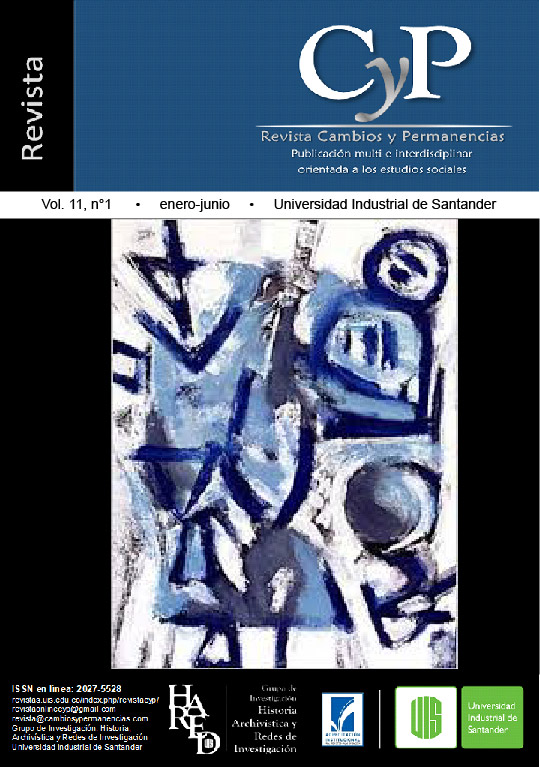Notes on the newest modernization of Cuban sugar culture. About Author’s experiences and her theory
Published 2020-06-30
Keywords
- oral history,
- sugar culture,
- qualitative research,
- biographical perspective,
- Cuban Revolution
How to Cite
Abstract
The closure of sugar mills is a known strategy in sugar producers countries. Cuba had several transitions of that kind during xx century, most of them related to technological changes and comercial strategies. In the very beginning of xxi’s Century Cuban government decided to start a new industrial concentration process, which was the biggest one in more than a Century. The half of the existent factories were closed in 2002 and after. In this paper the author narrates the main trends in two of her fieldwork experiences in sugar mills researches, in Matanzas and Artemisa provinces. Both in the west part of the Island. She analyses some aspects about social debates generated by the decission and also about documental sources scarcity. The research, based on Oral History theory, was adressed to create oral sources with workers testimonies, which allows to explore sociocutural ongoing processes. Oral history theory validate life histories and collectif intervews where several narrators talk about their life under the new conditions. Reflections on traditionnal Cuban sugar culture are between the most important conclusions of this work.
Downloads
References
Castro, F. (2002). Discurso pronunciado por el Presidente de la República de Cuba, en el acto inaugural de los Cursos de Superación para Trabajadores Azucareros, en áreas del central “Eduardo García Lavandero”, en el municipio de Artemisa, el 21 de octubre del 2002. Cuba: Versiones Taquigráficas - Consejo de Estado. Recuperado de http://www.cuba.cu/gobierno/discursos/2002/esp/f211002e.html
Dore, E. (2013). ¿Cómo leer (y cómo escribir) la historia oral? Historia, Voces y Memoria. Revista del Programa de Historia Oral, (5).
Lazarsfeld, P., Marie J., y Hans, Z. (1981). Les chômeurs de Marienthal. Paris, Francia : Les Éditions de Minuit.
Pozzi, P. (2012). Los desafíos de la historia oral en América Latina. (S. L.).
Rosales del Toro, U. (2004). Cuba tiene posibilidades de ampliar, de ser necesario, su producción azucarera. Granma. p. 3.
Vera Estrada, A. (2012). Guajiros del siglo XXI. Habana, Cuba: Instituto Cubano de Investigación Cultural Juan Marinello.
Vera Estrada, A. (2015). Diario en bruto 2013-2015.

